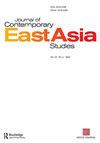Introduction to the special issue on the comparative study of Asian countries’ bilateral relations with China
IF 2.6
Q1 AREA STUDIES
引用次数: 3
Abstract
How should the world deal with a rising China? This is perhaps the question of the century, which national leaders are facing and contemplating daily all around the world. For some, China has become the most important economic partner, whose loans, investments and markets prompt them to deepen friendly relations. Many countries have joined China’s Belt and Road Initiative with high expectations for the construction of infrastructure and other development projects. However, economic engagement can cause tension, since it usually entails the inflow of Chinese people as well as money into local societies and China has not shown any hesitation in employing economic coercion to achieve its political goals. The political opposition to the government tends to take advantage of the resultant anti-China sentiments among the local population. For other countries, China’s increasing military capabilities and especially its maritime expansion and assertive actions in disputed waters create a dilemma between rising security concerns and expanding business interests. The political, economic and security interests and concerns in each country’s bilateral relations with China are inevitably affected by the shift in the international environment, especially the state of US-China relations, as well as relations with neighbors and their own China policies. It seems likely that the competition between China and the United States will intensify in the foreseeable future, and few countries will escape its effects. We easily get the impression that many countries have gone through ups and downs in their relations with China. Probably this is truly so. However, is it the case that entire relationships go through cycles of improvement and deterioration, or only a part of them changes while other aspects remain stable or even develop in the opposite direction? For example, was it not a widely accepted perception at one point in time that “politics are cold but economics are hot in Japan-China relations”? In fact, it is not easy to define “bilateral relations” between countries, although they are discussed daily as if people have a common understanding of what this term means. Are we talking about diplomatic, government-to-government relations, or, are economic and people-to-people relations included? Government-to-government relations have different aspects, too. It is possible for economic and environmental or health ministers of two countries to conduct constructive dialogs while defense and foreign ministers are at each other’s throats. Bilateral relations with China are invariably complicated and multi-faceted.《亚洲国家与中国双边关系比较研究》专刊导言
世界应该如何应对崛起中的中国?这也许是本世纪的问题,世界各地的国家领导人每天都在面临和思考这个问题。对一些人来说,中国已成为最重要的经济伙伴,其贷款、投资和市场促使他们深化友好关系。许多国家加入了中国的“一带一路”倡议倡议,对基础设施建设和其他发展项目寄予厚望。然而,经济参与可能会导致紧张局势,因为这通常需要中国人和资金流入当地社会,而中国在利用经济胁迫来实现其政治目标方面没有表现出任何犹豫。对政府的政治反对倾向于利用当地民众由此产生的反华情绪。对其他国家来说,中国日益增强的军事能力,尤其是其海上扩张和在有争议水域的果断行动,在日益增长的安全担忧和不断扩大的商业利益之间造成了两难境地。各国与中国双边关系中的政治、经济和安全利益和关切不可避免地受到国际环境变化的影响,特别是美中关系的状况,以及与邻国的关系和本国的对华政策。在可预见的未来,中美之间的竞争似乎会加剧,很少有国家能逃脱其影响。我们很容易得到这样的印象:许多国家在与中国的关系中经历了起起落落。也许确实如此。然而,是整个关系都经历了改善和恶化的循环,还是只有一部分发生了变化,而其他方面保持稳定,甚至朝着相反的方向发展?例如,“在日中关系中,政治是冷的,但经济是热的”,这不是一个被广泛接受的观点吗?事实上,要定义国家之间的“双边关系”并不容易,尽管人们每天都在讨论这些关系,就好像人们对这个词的含义有着共同的理解一样。我们谈论的是外交关系、政府间关系,还是经济关系和人民关系?政府与政府的关系也有不同的方面。两国的经济、环境或卫生部长有可能在国防部长和外交部长针锋相对的情况下进行建设性对话。与中国的双边关系始终是复杂和多方面的。
本文章由计算机程序翻译,如有差异,请以英文原文为准。
求助全文
约1分钟内获得全文
求助全文
来源期刊

Journal of Contemporary East Asia Studies
Social Sciences-Cultural Studies
CiteScore
2.50
自引率
0.00%
发文量
10
审稿时长
6 weeks
 求助内容:
求助内容: 应助结果提醒方式:
应助结果提醒方式:


